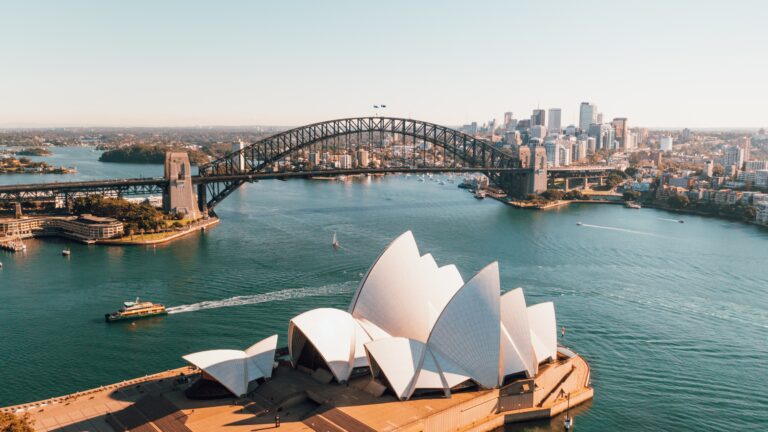
Remember those old Foster's beer commercials aiming to teach the viewer “how to speak Australian”? Well, although they were meant to be tongue in cheek, they had the right idea; Australia and New Zealand both have their own distinct idioms that you won't hear in other English-speaking countries.
Before discussing their language, it's important to know what people from Australia and New Zealand call themselves and their countries.
Australia
People from Australia call their homeland “Oz;” a phonetic abbreviation of the country’s name, which also harkens to the magical land from L. Frank Baum’s fantasy tale. Australians refer to themselves most often as “Aussies.”
New Zealand
New Zealanders may call their country “Kiwiland” or the Māori name of “Aotearoa,” and almost universally refer to themselves as “Kiwis” after the endemic (and adorable) flightless bird.
The two nations share a litany of linguistic quirks, a few of which are spelled out below.
G'day – The abbreviated form of “good day,” used as an informal greeting. Your basic, “Hi there!”
Mate and bro – These interchangeable words are popular replacements for “friend,” similar to the U.S.’s “dude” and “man.” They can express genuine friendliness, but they can also be used sarcastically or ironically, depending on the context.
Heaps – If you have lots and lots of something, you have heaps of it.
Chocka or chockers – An abbreviation of the phrase “chock-a-block.” This adjective means you've eaten your fill.
Fair Dinkum – This odd phrase with a disputed etymology simply means, “Honestly,” as in, there's no leg-pulling going on. As Aussies and Kiwis enjoy sarcasm and a good joke (as many of us do), the use of “fair dinkum” indicates that what they're saying is the genuine article.
Arvo – This word acts as a shortened version of “afternoon.” In both nations, an “-o” is often added to shortened words.
Bloody – As in the U.K. and Ireland, “bloody” simply means “very,” as in: “I've had heaps of food this arvo and I'm chocka, but this is bloody delicious!”
Ripper – In New England (where the Odysseys office is located), we say “wicked;” in Australia and New Zealand, they say “ripper.” Both mean “really great” or “awesome.”
Servo – Gas stations are called “petrol stations” Down Under, and sometimes are also called by this slang word.
She’ll be right – “Who is ‘she’?” you may wonder upon first hearing this expression. Well, “she” refers to “everything,” meaning this phrase translates to, “everything will be all right.”
Sweet as – Aussies and Kiwis will often emphasize adjectives by adding “as” at the end. So, “sweet as” just means “very sweet” or “very awesome.”
Yeah nah – It seems contradictory, but really this just means “no.” Adding the “yeah” implies indecisiveness or just allows the speaker to ease into the rejection.
Though the two countries are separated only by the 1,300-mile-wide Tasman Sea (which people from both refer to with typical droll humor as “the ditch”), Aussies and Kiwis can't seem to agree on a number of terms. Here are the most common linguistic divergences.
Thank you – To thank someone in Oz, give them a “cheers.” To give thanks in New Zealand, use its shortened cousin, “chur.”
Food – Aussies call their food “tucker,” while Kiwis may use the Māori word “kai.”
Toasted sandwich – Americans don't have a consensus name for a toasted sandwich, either, though many call it a panini. In any case, folks in Sydney call this a “jaffle,” while those in New Zealand and some other parts of Oz refer to it as a “toastie.”
Portable cooler – In Australia, it's called an “esky” (which is actually a brand name, though most Australians use it as a catchall term) and in New Zealand, it's a “chilly bin,” obviously.
Convenience store – If you're looking for a quick drink, snack, or newspaper, you'll go to the “dairy” in New Zealand and the “corner shop” in Australia.
Beer sizes – This one's tricky, and applies to ordering beer from a tap. Ordering a “schooner” in Australia will get you a 15 oz. beer, while the more popular 10 oz. offering is called a “middy” in Sydney and a “handle” in the Northern Territory (the Outback). In New Zealand, asking for a “handle” or a “pint” may get you anywhere from 13–16 oz. In a pinch, calling for a “pint” will always get you between 13–20 oz. in either country. Or, you could just order a bottle!
Flip flops – Aussies call these casual sandal-style footwear “thongs” while Kiwis use the term “jandals.”
Tired – Worn out after a long day of touring? In Australia, you're “stuffed” (not to be confused with “chocka”), while in New Zealand you're “buggered” or “knackered.”
We hope this list has been helpful, and that you're not too knackered after getting through it.
If you want to put your newfound linguistic knowledge to the test, consider our Exploring Australia and New Zealand or New Zealand Adventure small group tours.
By using this website you are agreeing to our Cookie Policy.